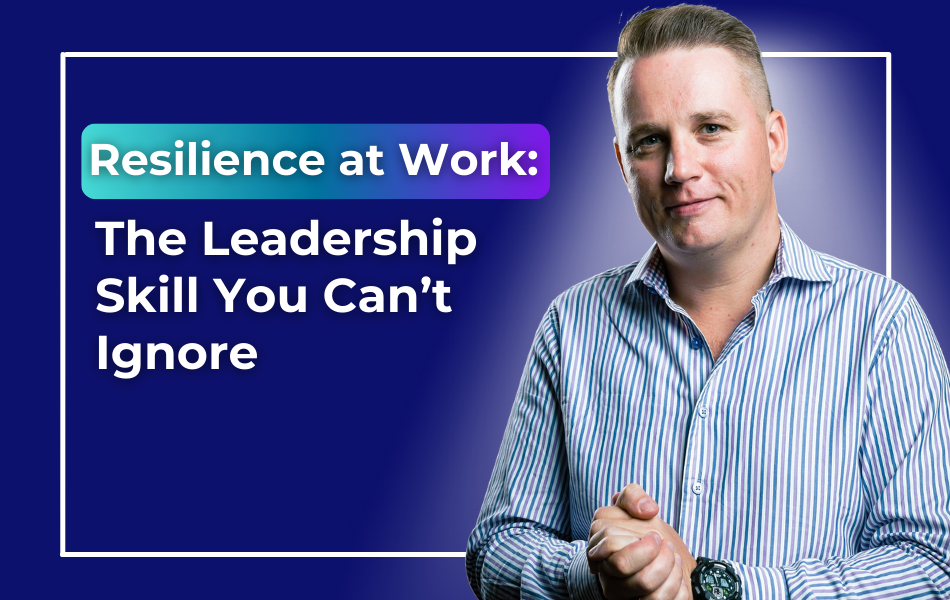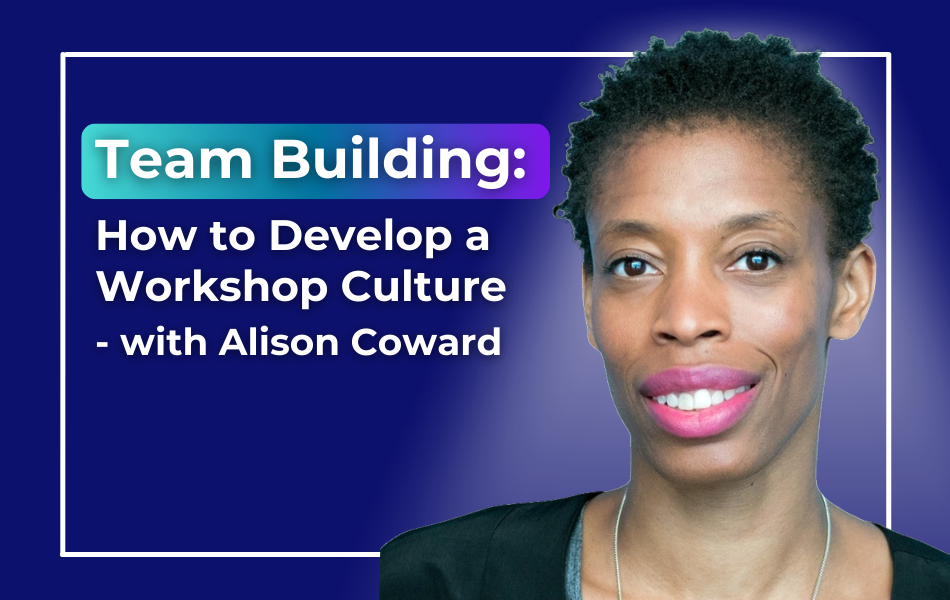
181. Smart People Problems
About this Podcast
Ep. 181 – Being a smart and analytical leader is a gift, but it also comes with its own set of unique challenges.
In this episode of The Manager Track podcast, I wanted to share five of the most common hurdles that smart and analytical professionals encounter as they rise in their careers and how to over come them.
If you’ve ever bombarded your team with excessive details or got caught in a never-ending analysis loop then this episode is for you. I’ll dive into some valuable techniques that you can use to curtail the problems you face as a smart leader in today’s workplace.
Episode 181 Transcript:
Ramona Shaw [00:00:01]:
This is going to be a fun and short episode on smart people problems, I e, the things that I realize, especially smart and analytical people struggle with the most as they elevate in their leadership roles. Is Here’s the question. How do you successfully transition into your 1st official leadership role, build the confidence and competence to lead your team successfully and establish yourself as a respected and trusted leader across the organization? That’s the question, and this show provides the answers. Welcome to the Manager Track podcast. I’m your host, Ramona Shaw, and I’m on a mission to create workplaces where work is not seen as a source of stress and dread, but as a source of contribution, connection and fulfillment. And this transition starts with developing a new generation of leaders who know how to lead so everyone wins and grows. In the show, you learn how to think, communicate, and act as the confident and confident leader you know you can be. Welcome to this episode of the Manager Track podcast.
Ramona Shaw [00:01:06]:
We’re gonna talk about smart people problems. One of the things that I find really interesting is that as we grow as leaders and have to evolve our work style, our approach to the day, the the way that we communicate, the way that we engage with others. All that has to change as our roles and responsibilities change and as we change or want to expand how we’re being received by others, I e, our reputation. If you’re looking to be perceived by others as a capable leader who’s able to effectively manage a team or even a larger group or organization, then the things that you did early on as a very analytical or very tactical person will no longer work. It’s very obvious and clear to everyone, yet that journey looks a little bit different for each of us. The way that you personally have to go through this transition or through your growth in your career is different than the way I go about it and the way that your coworkers go about it, your colleagues, friends, and so forth. However and as much as we are different in our styles, and in our careers and positions and all that.
Ramona Shaw [00:02:19]:
There are some commonalities, and I love identifying the themes, the commonalities between the people that I work with in my own experience through the research that I see and read, and pick up some of these things to help you as a listener build greater awareness of what might be showing up for you. What are some of the barriers you might have to overcome? What are potential blind spots as you elevate and grow as a leader, as well as what are some of the things that could hold you back. And oftentimes, if we don’t see what’s coming and we’re not aware what’s down the road here, what are is the behavior or something I have to let go of in order to be ready for the next role and be missed at because we’re not aware, we can really get stuck in a cycle that is hard to get out of. I just wanna talk about some of these things. I took some time prior to hitting record. I thought I wanna keep this somewhat short, concise, and hopefully insightful and fun. That I wrote down what are those 5 specific things that particularly smart people struggle with. And when I say smart people, there there are many different ways to be smart.
Ramona Shaw [00:03:30]:
What I’m referring to here is people who are analytical, methodical, people who are have high degrees of technical expertise in their field as they grow in their careers and how that may create barriers as they try to elevate in the organization. All these are just themes. They may not all apply. They all show up a little bit different, but yet, commonalities. Okay. Let’s dive in. The first one is, and I doubt this is to anyone’s surprise, is analytical people are often sharing way too much detail than is necessary. And here’s why.
Ramona Shaw [00:04:05]:
As a methodical, detail oriented person and analytical person, you likely understand that not everything is as clear cut and not everything is as straightforward as it is laid out to be or as it should be or can be communicated. And so you wanna make sure that the other person or the people in front of you get the nuance and the granularity of the issue or the complexity at hand and that they clearly understand what influenced your approach, what caused the problem, what the situation is like because you also recognize all these different aspect play a role in your assessment or your suggestion. And, hence, it is important if you wanna get their buy in, then they understand the whole lay of the land, but that is not effective. So might be factually true that it’d be useful for them to understand all of it as much as you do. 1, not possible because they’re not in it as the same way that you are in it. And 2, you will lose them after the 1st minute talking. And it will diminish your reputation as a leader if you keep communicating in it with too much detailed than what your audience is asking for. So here are a couple suggestions.
Ramona Shaw [00:05:25]:
1st, start off with the main message. Don’t make a long winded explanation of the context and all the things that are feeding into your conclusion before you come to the conclusion. State your conclusion first, then assess how much detail to provide. And it’s totally okay to say, here’s the problem statement. This is my proposed solution. What aspect of this would you like to dig deeper into, or where do you want me to elaborate? There are 3 factors that play into it. 1 is the cost. 2nd 1 is the time allocation or the timeline, and 3rd are maybe the internal resources.
Ramona Shaw [00:06:04]:
Where do you wanna start. Right? Ask for indications of where you should double click and they dive deeper into before you just dump it on them if they have not asked for it. Another common concern is, well, the person in front of me doesn’t understand. I can see in their faces that they’ve checked out or they’re not following what I’m saying, so I have to give them more detail, more examples, or more description or Say it again. Right? Repeat myself. Well, if that’s the concern, then instead of just providing more detail, ask them a question that will indicate if they’re actually not following or if they already got it or don’t need any of that information. So for example, you could say, talk about a problem and then say, okay. Based on this, what are you suggesting as next steps? Or that’s my perspective.
Ramona Shaw [00:06:55]:
How does that influence your team or your work or this project or what do you consider to be the biggest risk here? These are all questions that seem supernatural and normal in a dialogue. It just doesn’t sound scripted. It you’re not asking, hey. Can you repeat back to me what I just said? Right? That sounds awkward. But if you ask a question that’s content related and will give you an indication Did you actually catch what I said, or do we still have a gap to bridge? So be mindful about how much detail to share if it’s unsolicited information. No one’s asked for it, and it’s not warranted. So that’s number 1. Even if in your mind, it is totally necessary information.
Ramona Shaw [00:07:41]:
Especially if you talk to people higher up in the org, they don’t need all the detail unless they ask for it. Concise. Concise. Concise. One of the key issues that I see with leaders who are trying to build their executive presence and work effectively with more senior stakeholders. The 2nd smart people problem is the overthinking and overanalyzing. This could be that someone says, hey. We seem to have a problem in the database when this kind of query is made, and then can you look into this? You might say, okay.
Ramona Shaw [00:08:17]:
Great. I’m gonna go look into it. So you look at the code or you look at the database and the algorithm, And all of a sudden, as you look at this, a whole other pandera box opens, and it’s opening up more questions or more things that are unclear. In an hour, 2 hours, 3 hours later, you find yourself going down that rabbit hole. You’re not actually any closer to solving that initial quest or that problem, you just start to see more and more and you start to take all that into consideration is overanalyzing the problem at hand or what was actually asked for. This could also show up if you wanna make a decision and you recognize there isn’t a clear right or wrong, there are risks involved, and you’re trying to gather more information and you analyze it and you think about it. And then how other people perceive you might be that you’re indecisive or they might be that you’re slowing it down, that you’re procrastinating, that you’re not willing to take risks. That is not beneficial.
Ramona Shaw [00:09:22]:
Because as more senior leaders, you have to, 1, be able to and willing to take risks. 2, you need to keep up you need to be decisive, and people need to see you as someone who is decisive, and you need to be able to specifically address the challenges at hand. Right? That challenge is at hand because you have limited resources and capacity to overanalyze or stir over something that doesn’t actually need to be tackled or is not important and or urgent. Now if you are a very analytical person, you might start to raise your eyebrow here and be like, boo. But wait a second. That we have to really understand and get to the root cause of a problem. Yes. Absolutely.
Ramona Shaw [00:10:03]:
But only when warranted, when it is needed, and when it is beneficial. If you do this on a regular basis without the justifiable outcome, people will look at it as a negative trait, and is, likely, it will prevent you from making the big movements, and it will likely keep you and hold you back from making progress where progress is most needed because you’re spending more time and mental energy overthinking or overanalyzing it. This one is a hard one to capture and to figure out where you land on that spectrum of not thinking enough about it. I’m making rash decisions versus overthinking and then spending too much time on it. And I highly recommend asking people around you, especially those who are more senior to you or your peers, maybe a trusted person on your team to ask, hey. Where do you find myself stir over something where it might not be necessary? Or can you tell me a recent example where you thought I’m overthinking or overanalyzing an issue or a topic? If you’re unsure, I recommend doing a quick temperature check. Okay. So that was number 2.
Ramona Shaw [00:11:10]:
Number 3 is about focusing on being right. Intelligent people who have high levels of expertise and experience and skill know that they know more than others. They may be faster thinker than others, and, hence, they know and truly belief that their opinion is the right opinion. There’s one right way to go about it, one right solution, one right method, one right decision, and it is theirs. And I’m not here to question whether that’s true or not. But I’m here to say that sometimes what’s important is not to be right. What’s important is to be effective. And you don’t always have to be the one who has the right solution and pushes it through.
Ramona Shaw [00:12:03]:
Certain things you can simply let go. You can still disagree with someone you can still hold on to your opinion, or you can just drop it or you can just pass on the ownership to someone else or you can just let someone else take ownership of it. But sometimes you can just let that go and focus more on the relationship aspect, on actually getting someone’s buy in or someone’s commitment. How do you ensure that it’s not creating friction or conflict or mistrust. How do you ensure that it’s not hurting their relationship or hurting the trust because of you being very argumentative are very domineering in such situations. You can also let things go and say, hey. Ultimately, that’s not within my responsibility or, ultimately, I would do it that way, and I’m a 100% sure that’s the right way to go. But I will let someone else go through this learning experience.
Ramona Shaw [00:13:04]:
And, if it works out, them doing it their way, great. If it doesn’t, I will be there and support them through the process. That is okay, and your team members or colleagues will learn a tremendous amount and really appreciate that you give them the space for those learning opportunities, and you also have their back when things go wrong without saying, oh my gosh. I told you so. Right? But you’ll say, okay. What did you learn here, and how what do you understand, and how would you go about it next time? And then also there are the things where you just don’t need to have an opinion at all. Or there may be situations where you might have an opinion, but you don’t need to share that at all. You can let someone else run with it.
Ramona Shaw [00:13:47]:
If you’re not being asked, you can let that go and say, not in my wheelhouse or not within my responsibility. And if I’m not asked for my opinion, I also don’t need to push it on them. There isn’t a a clear black or white or one size fits all. You have to evaluate it. But overall, the idea of being effective in your relationships, in your leadership, in the way that you engage and motivate and develop and grow your team can be more important and often is than actually pushing through what you think is the right solution or the right opinion, the right decision. So that’s number 3. Number 4 is taking too much ownership.
Ramona Shaw [00:14:32]:
Smart people are good at what they do and others know it. So you may start to be the person who always tells people what to do next and how to go about it. They will ask you a lot of questions on what you prefer and what you think. And you actually feel really helpful in the moment, and it may even feel rewarding that that you’re being asked for your opinions and for your knowledge. But at the end of the day, what will happen is you’ll create the dependencies where people aren’t learning on their own, and they’re not trusting their own opinions because they always check-in with you. So ultimately, you find yourself at holding too much ownership, being too involved in what other people are doing and guiding them and directing them. Not only can this feel frustrating because you might notice how much time this takes out of your day. So it’s can be frustrating, can be unproductive, but it can really hold your team back in growing and learning and hold you back, therefore, in elevating and doing the things and getting involved in higher level activities and project that you are uniquely qualified for or want to really develop or grow into.
Ramona Shaw [00:15:41]:
So taking on too much ownership simply because you know about it or you know that you can do it and you can do it really well is a problem. That’s the 4th smart people problem that we’re talking about here today. Now the last 1 I’m gonna share is that smart people tend to have a hard time being satisfied with a work product that is, in their opinion, only 70% of what it could be. The reason why I use 70% is because there is the unwritten rule that anything that you currently do that someone else could do about 70% as well as you do it, you should delegate. Now if you can’t accept as a solution or a work product that is only 70% as good as you could do it, you might not delegate, therefore have too much on your plate and either, you know, feel burned out or depleted or overwhelmed and not effectively use your energy, your mental energy on the right solutions or the right problems, on being strategic, being forward looking, or keeping the bigger picture in mind as you lead your team because you’re too heavily involved in those tasks and projects in conversations that you’re not willing to let go because you worry about someone else taking it on and it not being as thought through were as accurate and detailed as you think it needs to be. Smart people in a workplace often have high expectations on themselves but also on others. And if you’re unwilling to give some wiggle room there, you’ll become the bottleneck really, really fast. So quick recap.
Ramona Shaw [00:17:26]:
The 5 smart people problems here, specifically referring to analytical, intelligent, highly capable people with lots of expertise, and they built their career and their, got promoted mainly because of their expertise and their skill set. The 5 most common things that I see that get in the way of them elevating into higher levels of leadership is 1, communicating with too much detail, 2, overanalyzing and overthinking, 3, focusing more on being right than on being effective. 4, taking too much ownership. And 5, not being able to be okay with 70% of their work quality and, hence, not delegating nearly as much as they should and could. Those are the 5. I hope you found this helpful and that it sparked some food for thought and self reflection on your end in where you might be falling into some of these traps and what you wanna do about it. If we can help you figure this out and more, we would, of course, love to do that. Check out the show notes to see how to schedule a free strategy call with me to look at your current situation, clarify what you want and where you want to get to, and then the strategies to bridge is the gap.
Ramona Shaw [00:18:43]:
And that’s a wrap for today. I’ll be back next week with another episode of the manage a truck podcast. If you enjoyed this episode, then check out 2 other awesome resources to help you become a leader people love to work with. This includes my bestselling book, the confident and competent new manager, which you can find on Amazon or at ramonashaw.com/book and a free training on how to successfully lead as a new manager. You can check it out at ramona shaw.com/master class. These resources and a couple more, you’ll find in the show notes down below.
REFLECTION & DISCUSSION QUESTIONS
1. What strategies can you implement to effectively communicate your message without overwhelming your audience with unnecessary detail?
2. What methods can you use to overcome the tendency to overthink and stay focused on finding solutions rather than getting lost in endless analysis?
3. How can you cultivate a mindset of focused problem-solving and avoid getting sidetracked?
4. What strategies can you employ to ensure your message is heard and understood by different audiences, especially those in more senior positions?
RESOURCES MENTIONED
- Learn how to turn your 1-on-1 meetings from time wasters, awkward moments, status updates, or non-existent into your most important and valuable meeting with your directs all week. Access the course and resources here: ramonashaw.com/11
- Have a question or topic you’d like Ramona to address on a future episode? Fill out this form to submit it for her review: https://ramonashaw.com/ama
OTHER EPISODES YOU MIGHT LIKE
- Episode 36: Become a Strategic Thinker
- Episode 43: Is Your Thinking Helping or Hurting You?
- Episode 44: How to Be More Focused and Get Less Distracted
- Episode 53: How Not To Micromanage
- Episode 67: How Do You Measure Your Own Performance?
- Episode 83: Having High Standards
- Episode 93: The Shadow Sides of Being a “Type A” Leader
- Episode 105: Train Your Thinking to Become a Better Leader
- Episode 147: Second-Guessing Ourselves & Decision Hangover
- Episode 165: Overdone Strengths
WHAT’S NEXT?
Grab your copy of Ramona’s best-selling book ‘The Confident & Competent New Manager: How to Rapidly Rise to Success in Your First Leadership Role’: amzn.to/3TuOdcP
If this episode inspired you in some way, take a screenshot of you listening on your device and post it to your Instagram Stories, and tag me @ramona.shaw.leadership or DM me on LinkedIn at linkedin.com/in/ramona-shaw
Are you in your first manager role and don’t want to mess it up? Watch our FREE Masterclass and discover the 4 shifts to become a leader people love to work for: ramonashaw.com/masterclass
Don’t forget to invest time each week to increase your self-awareness, celebrate your wins, and learn from your mistakes. Your career grows only to the extent that you grow. Grab your Career Journal with leadership exercises and weekly reflections here: ramonashaw.com/shop
Love the podcast and haven’t left a review yet? All you have to do is go to ramonashaw.com/itunes and give your honest review. Thanks for your support of this show!
* Disclaimer: Shownotes may contain affiliate links. That means that I am awarded a small commission for purchases made through them, at no added cost to you.






